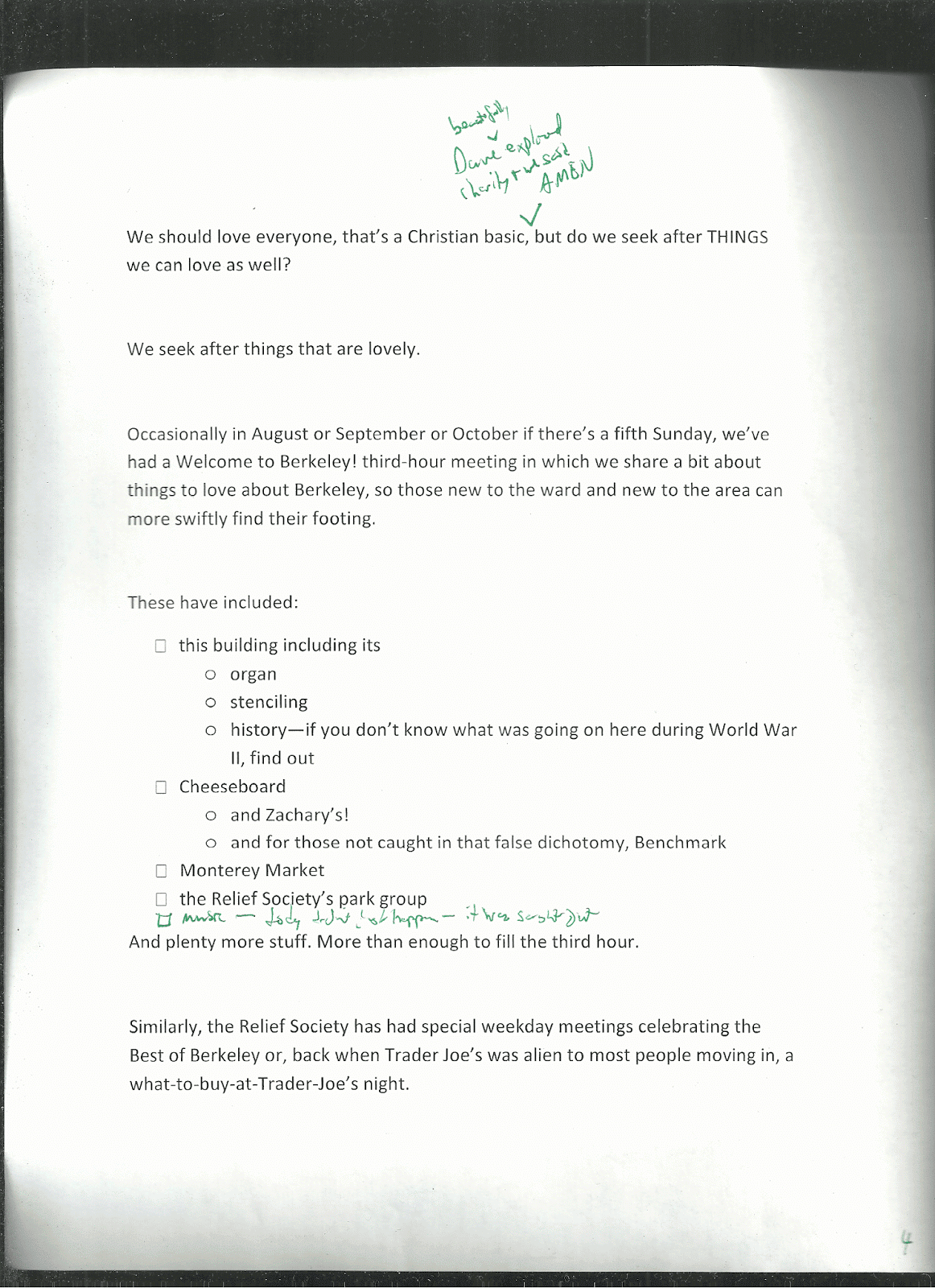037) Winesburg, Ohio by Sherwood Anderson, finished July 22
I only recently became aware of this book and, frankly, I'm surprised I picked it for my trip. The recording the library provided was . . . imperfect. Some stories I skipped over for a variety of reasons (scratched tracks, noise issues with my car, one terrible narrator), but I listened to almost all of it and it was terrific. Reminded me a lot of Spoon River Anthology---its basically the short-story-collection twin of SRA, really. But it's like other, similar books as well. Dubliners is the most famous example, but I liked this much better. (Joyce: the most overrated writer of the Twentieth Century? Yeah. Probably. Even if he's good, he'll still probably win that race.) All three of these books, incidentally, were published in three years. So something was in the air. I've been trying to think what the modern version would look like, and I'm just not sure.all the way to sdcc and much of the way back
It's a small Ohio town and the people that live there. They lean towards the sad and lonely, but that doesn't prevent the telling from finding beauty. It's not a rejection of this image of Americana, but it does examine it very very closely with a squint.
===========================================================
036) UR by Stephen King, finished July 20
Audiobooks from the library for my 1000-mile journey alone! Book one: this one.first leg of my drive to sdcc
King really is the master of making small, everyday things otherworldly. I wouldn't call this a horror story though it has many of the trappings.
Here's the conceit: Guy gets a Kindle with the ability to download books from alternate realities. Imagine access to books your favorite writer only wrote in another world. Yeah. I know.
Anyway, that's the idea. If it sounds good to you, this might be the best king to start with. Not scary. Short. The perfect starter drug.
===========================================================
035) Fante Bukowski by Noah Van Sciver, finished July 13
Fante is a truly pathetic fellow and, best I can tell, his good intentions notwithstanding, a genuinely bad writer of the sort unlikely to improve. When you can plagiarize an entire novel without realizing you're doing it, you might not be the sort of idea-generator who can make it as an artist.short
But that's how he loses.
Noah's treatment of him, however, is much kinder. Sure we see him honestly, but that honesty prevents us from hating him. For all his pretension, ego, silliness, hacksterism, etc, Fante's a real person and we feel for him. We don't hate him for his social and artistic blunders---we're embarrassed for him. And that's a much kinder angle.
nominated for an Eisner
===========================================================
034) "H" Is for Homicide by Sue Grafton, finished July 12
Most of the time, Kinsey Millhone is in situations that might be dangerous and so maybe something bad could happen at any moment. In this novel, every moment is definitely dangerous and so the maybe-something-bad-could-happen-at-any-moment is exceedingly more stressful and worrisome. Beware accidentally going undercover with organized crime. Beware!over a week, maybe over two
Previously in 2016
31 – 33
033) Isaiah: Prophet, Seer, and Poet by Victor L. Ludlow , finished July 5
032) Sistering by Jennifer Quist, finished July 1
031) Sayanora Slam by Naomi Hirahara, finished June 6
26 – 30
030) Sunny Side Up by Jennifer L. Holm and Matthew Holm, finished May 30
029) Best American Comics 2015 edited by Jonathan Lethem, finished May 30
028) G Is for Gumshoe by Sue Grafton, finished May 21
027) The Unbeatable Squirrel Girl Vol. 2: Squirrel You Know It's True by Ryan North & Erica Henderson, finished May 20
026) "F" Is for Fugitive by Sue Grafton, finished May 12
19 – 25
025) Soldier Dog by Sam Angus, finished May 6
024) Baba Yaga's Assistant by Marika McCoola and Emily Carroll, finished May 1
023) The Unbeatable Squirrel Girl Vol. 1: Squirrel Power by Ryan North and Erica Henderson, finished April 30
022) Little Robot by Ben Hatke, finished April 26
021) What We See When We Read by Peter Mendelsun, finished April 26
020) Roller Girl by Victoria Jamieson, finished April 23
019) The Only Child by Guojing, finished maybe April 21
15 – 18
018) 77 Love Sonnets by Garrison Keillor, finished April 21
017) Fidelity by Grace Paley, finished April 20
016) The Jam Jar Lifeboat & Other Novelties Exposed by Kay Ryan, finished April 15
015) Work & Days by Tess Taylor, finished April 1
11 – 14
014) The Little World of Liz Climo by Liz Climo, finished March 29
013) Forgive me, I Meant to Do It by Gail Carson Levine, finished March 26
012) Fences by August Wilson, finished c. March 14
011) The Life and Times of the Thunderbolt Kid by Bill Bryson, finished March 19
10
010) Folk of the Fringe by Orson Scott Card, finished March 9
5 – 9
009) The Naked Soul of Iceberg Slim by Robert Beck, finished February 29
008) Half Moon Investigations by Eoin Colfer, finished Feb 20
007) Bless this Mouse by Lois Lowry, finished February 16
006) Dendo by Brittany Long Olsen, finished February 14
005) Dream House on Golan Drive by David G. Pace, finished February 5
1 – 4
004) Mormon Shorts, Vol I by Scott Hales, finished January 23
003) Shirt in Heaven by Jean Valentine, finished January 18
002) Eleanor & Park by Rainbow Rowell, finished January 14
001) Spy School by Stuart Gibbs, finished January 9
_____________________
* most recent post in this series *
__
final booky posts of
2015 = 2014 = 2013 = 2012 = 2011 = 2010 = 2009 = 2008 = 2007
* most recent post in this series *
__
final booky posts of
2015 = 2014 = 2013 = 2012 = 2011 = 2010 = 2009 = 2008 = 2007
.png)










